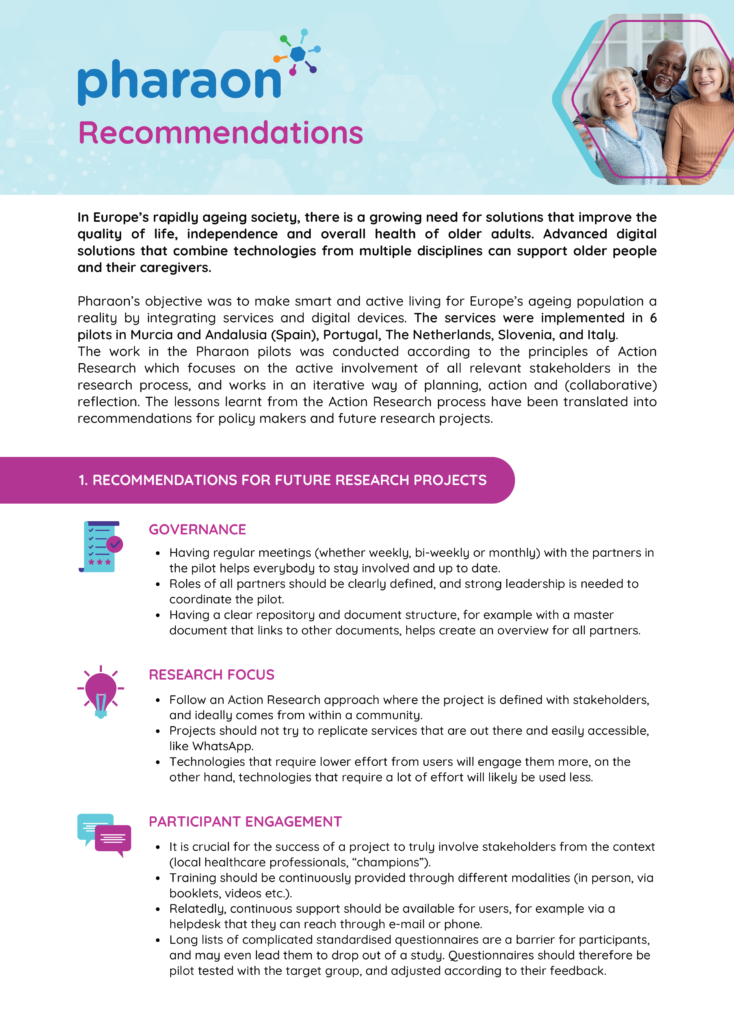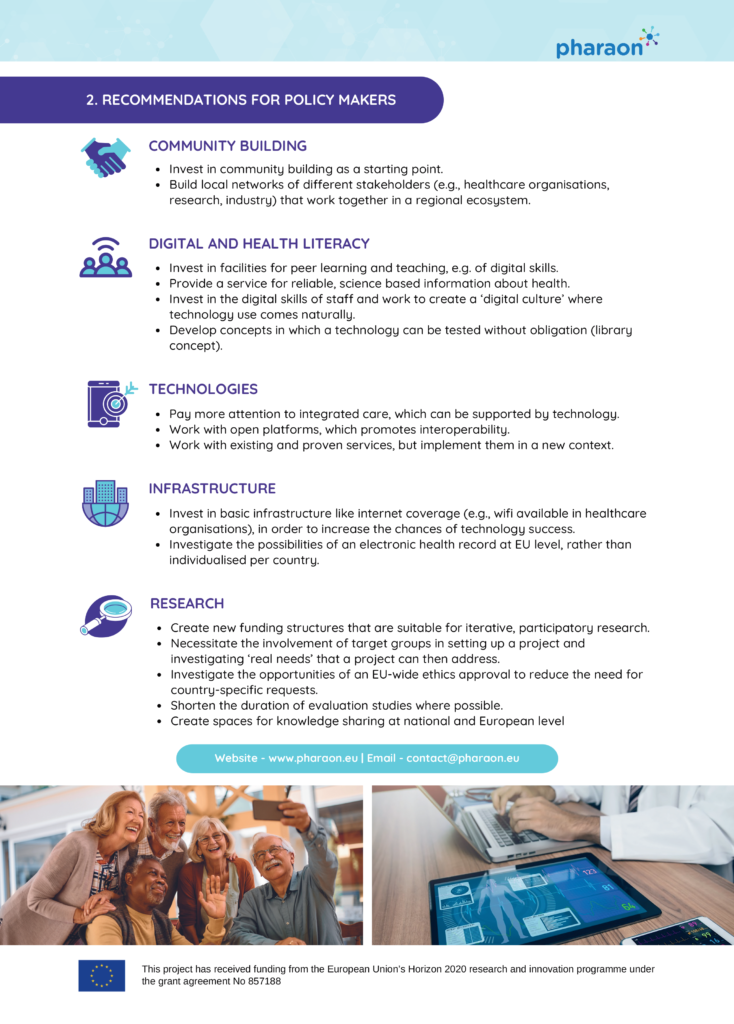
21 Jun Pharaon recommendations on action research
Pharaon’s objective was to make smart and active living for Europe’s ageing population a reality by integrating services and digital devices. The services were implemented in 6 pilots Murcia and Andalusia (Spain), Portugal, The Netherlands, Slovenia and Italy. The work in the Pharaon pilots was conducted according to the principles of Action Research which focuses on the active involvement of all relevant stakeholders in the research process, and works in an iterative way of planning, action and (collaborative) reflection. The lessons learnt from the action research process have been translated into recommendations for policy makers and future research projects.
Download the recommendations as a 2-pager .pdf (click here)
Recommendations for future research projects
Governance
- Having regular meetings (whether weekly, bi-weekly or monthly) with the partners in the pilot helps everybody to stay involved and up to date
- Roles of all partners should be clearly defined, and strong leadership is needed to coordinate the pilot
- Having a clear repository and document structure, for example with a master document that links to other documents, helps create an overview for all partners
Research focus
- Follow an action research approach where the project is defined with stakeholders, and ideally come from within a community
- Projects should not try to replicate services that are out there and easily accessible, like WhatsApp
- Technologies that require lower effort from the user will engage them more, on the other hand, technologies that require a lot of effort will likely be used less
Participant engagement
- It is crucial for the success of a project to truly involve stakeholders from the context (local healthcare professionals, “champions”)
- Training should be continuously provided through different modalities (in person, via booklets, videos etc.)
- Relatedly, continuous support should be available for users, for example via a helpdesk that they can reach through e-mail or phone
- Long lists of complicated standardised questionnaires are a barrier for participants, and may even lead them to drop out of a study. Questionnaires should therefore be pilot tested with the target group, and adjusted according to their feedback.
Recommendations for policy makers
Community building
- Invest in community building as a starting point.
- Build local networks of different stakeholders (e.g., healthcare organisations, research, industry) that work together in a regional ecosystem.
Digital and health literacy
- Invest in facilities for peer learning and teaching, e.g. of digital skills.
- Provide a service for reliable, science based information about health.
- Invest in the digital skills of staff and work to create a ‘digital culture’ where technology use comes naturally.
- Develop concepts in which a technology can be tested without obligation (library concept).
Technologies
- Pay more attention to integrated care, which can be supported by technology.
- Work with open platforms, which promotes interoperability.
- Work with existing and proven services, but implement them in a new context.
Infrastructure
- Invest in basic infrastructure like internet coverage (e.g., wifi available in healthcare organisations), in order to increase the chances of technology success.
- Investigate the possibilities of an electronic health record at EU level, rather than individualised per country.
Research
- Create new funding structures that are suitable for iterative, participatory research.
- Necessitate the involvement of target groups in setting up a project and investigating ‘real needs’ that a project can then address.
- Investigate the opportunities of an EU-wide ethics approval to reduce the need for country-specific requests.
- Shorten the duration of evaluation studies where possible.
- Create spaces for knowledge sharing at national and European level



